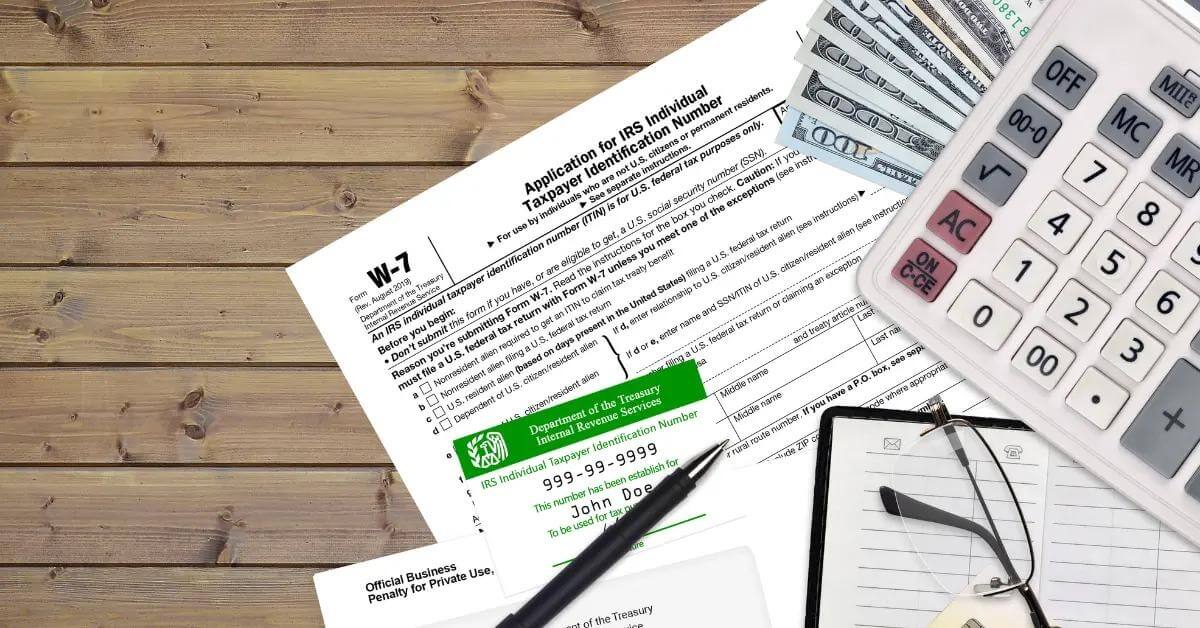There were close to 17 million instances of identity theft in recent years, and a good amount of these are the result of tax fraud.
Fraudulent tax returns can be problematic for you. If you find yourself on the wrong end of a fraudulent return, you’ll need to get help so that an investigation is conducted.
Read on and learn from the tips below so that you can fix your situation.
Signs That Tax Fraud Identity Theft Occurred
First things first, you need to be fully able to point out instances of identity theft. There are always some telltale signs that your information might have been compromised.
Here are a few of the major signs that you might have an identity theft issue on your hands:
Additional Reading: How The IRS Defines Tax Fraud vs. Negligence.
1. There Were Multiple Returns Filed Under One Social Security Number (SSN)
Protecting your social security number (SSN) is of the utmost importance if you are trying to prevent identity theft.
Wrongdoers are using such Social Security numbers to trigger a refund from the IRS or state revenue offices. Those perpetrating social security fraud, besides using the Social Security numbers of actual taxpayers, may be also using the Social Security numbers of deceased taxpayers or children.
The IRS is hoping to create a number of strategies that will prevent identity theft as related to tax fraud from occurring. One such strategy is check the IP addresses of the computers filing the returns. In the event the same computer is responsible for multiple returns, there is a greater chance that returns generated are fraudulent.
When someone gets access to your social security number, multiple returns will inevitably be filed. In these situations, either you accidentally filed a duplicate, or someone else filed a fraudulent return in your name.
Unfortunately, for victims of such theft there could be a significant delay in receiving a tax refund. For every Social Security number tagged by the IRS in a tax fraud scheme, there will be an investigation. Any victim of identity theft hoping for a refund will have to wait for resolution of this investigation.
Estimates on how long such investigations will take vary. The IRS generally informs taxpayers that the investigation should take 180 days or less. The Office of the National Taxpayer Advocate (NTA), on the other hand, reported that it takes 278 days to resolve these claims. When filing a police report and Form 140309 (accompanied by a paper copy of the tax return), the average waiting period is reduced by 54 days.
If you’ve received word that there was a return filed on your Social Security Number (SSN), you need to be vigilant in taking action and finding out what’s going on.
2. Money Is Owed or Refunds Are Due for Years That No Taxes Were Filed
Never pay a tax bill without thoroughly reviewing it.
By just accepting an account at face value, you might miss the fact that you owe money for taxes that weren’t yours. Owed money from years you didn’t file is one of the biggest red flags that something is off.
Do your due diligence to keep tax records on file so that you are able to quickly pinpoint a discrepancy as it happens.
3. The Income Listed Doesn’t Add Up
Income that doesn’t match up will always draw red flags with the IRS.
Know what you earned this year from all your income streams. Whether this means rounding your W-2 forms or piecing together various 1099 forms, you’ll need to be able to correct or dispute any listed income that doesn’t appear to be yours.
You will definitely be able to point out these income discrepancies if the gap between what you actually earned and what the IRS says you owe is tremendous.
Many fraudulent tax filers carry out scams to get themselves a hefty return by using your social security number and name. When you keep track of your actual income it’ll be much easier to spot these differences.
4. The Internal Revenue Service (IRS) States That a Return Drew Suspicion
The last thing you want during tax time is to get hit with tax penalties when the IRS finds something amiss with your return. In this regard, some fraudulent return investigations are as much about clearing your name as they are to hold the identity theft accountable.
When you get a letter from the IRS saying that your return is suspicious, you’ll definitely want to take action.
First off, make note that the IRS will only send you this sort of correspondence in the form of a letter. If you are getting a phone call or text message, you may be getting hit with a tax scam.
Once you get the letter from the IRS, be sure that you carefully read through the breakdown of what exactly drew their suspicion. Usually, you’ll be able to tell right away if something that they mention doesn’t look like it came from your tax return.
Take this correspondence seriously and take the next steps once you get this letter from the IRS.
5. A Return Gets Rejected
There are a number of reasons why a tax return can get rejected, and identity theft ranks high on the list.
When you get your return rejected because the IRS says there’s a duplicate return on file, this is usually a surefire sign that your identity has been stolen. In some situations, the return itself will be denied, and in other situations, the check that you send to pay for your return might get rejected.
6. You Start Getting Contacted by Creditors You Don’t Owe
If your tax return is compromised, you will most likely start getting calls from creditors you don’t recognize.
When someone has your social security number, they most likely will also open up accounts outside of the tax return filing. Be vigilant when you hear about any account that doesn’t sound legitimate.
7. A Medical Claim Is Stalled or Rejected
If your identity was stolen, it might also affect your medical claims.
Claims get denied all the time when you have problems with your social security number or other personal information. Be sure you get thorough information from your insurance provider if a claim gets denied.
8. Bank Withdrawals Are Created That You Didn’t Authorize
Keep tabs on your bank account and look into any withdrawals that you didn’t authorize.
If you notice large debits or electronic funds transfers (EFT) that you didn’t sign off on, your identity could already be compromised. Consider banking with a financial institution that has plenty of safeguards in place to block these or to tip you off as soon as they occur.
Understand Why Identity Theft Is So Dangerous
Now that you know some of the telltale signs of tax-based identity theft, it’s time to understand exactly what sort of implications it can have. In addition to stalling your taxes, consider some of these headaches:
1. Investigations Can Take Time and Effort
Be ready for tax fraud investigations to take some time.
You’ll need to be patient during these investigations, and the frustration can pile up. Every second that you’re spending dealing with a tax investigation is time that your taxes aren’t filed, which can be stressful in itself.
When you have to undergo an investigation, it’ll take a lot of attention, diligence, and resources — all of which require patience.
2. You’ll Likely Have to Close a Number of Bank Accounts
Once you’re triggering tax red flags, you can expect to have your bank accounts compromised also.
This is especially true if your tax return EFT or check bounced. When these situations happen, it’s often wise to close accounts or cancel debit cards in order to protect your finances.
Having to close accounts can be aggravating — especially if you have bills or automatic payments tied to a checking account, credit card or debit card. Be sure that you take inventory of each account so that you can close and replace them as needed.
3. It Requires You to Continuously Check Identity Theft Issues
It’s an unfortunate fact that once someone has stolen your social security number, it’s often more than just a one-off event.
For instance, social security number information is often sold on the dark web and the black market. Because of this, you will need to be vigilant about other identity theft issues moving forward — especially when tax time rolls around again.
4. A Person Can Hijack Your Tax Refund
A hijacked tax return can put you in debt and throw your finances out of whack.
When your identity is stolen for tax reasons, it’s usually so that someone can steal your return. This can be beyond frustrating if you were counting on that money to do something with it.
Rather than letting someone get away with stealing your tax refund, you should aggressively pursue action and begin the investigation.
Report the Tax Fraud Situation
It’s up to you to take the right steps to make sure you’re reporting identity theft accordingly. This way, you can start the investigation off on the right note, and can fix the situation quickly.
Follow these steps so that you can get the ball rolling:
1. Report the Situation to the IRS in Written Form
Immediately get in touch with the IRS when you think you’ve been the victim of tax identity theft.
You’ll need to get in touch with the IRS in written form so that you can report the issue and have a paper trail for your records. Start by writing the IRS letting them know that you are aware of the situation and that you plan to take every avenue to clear it up.
It might make sense to get the letter notarized so that you are able to have a witness and ensure that the correspondence is official.
The IRS also has forms in place that you can use in order to report these situations. For instance, Form 14157 is in place so that you can report any sort of fraudulent activity from your tax return.
Do your due diligence so that you are able to get documentation of the fraudulent return so that you can rectify things accordingly.
2. Find Out Which IRS Agent Is Handling Your Case
The IRS can feel like a faceless organization if you don’t do your research. Once you make initial correspondence with the IRS, take the time to find out which agent is handling your situation.
That way, you’ll know who specifically to follow up with, and can get a direct line phone number that you can reach them at.
3. The IRS Will Conduct a Primary Investigation and Decide How to Proceed
After you start the preliminary investigation, the IRS will touch base with you and let you know how they’ll proceed.
Your agent will give you a timetable for the investigation, and will likely follow up via phone to confirm the details of your claim. From there, they will touch base and update you on your claims of tax fraud.
4. Close Any Necessary Bank or Credit Accounts
By addressing your bank accounts and credit cards, you decrease the chance of further identity theft.
Because EFTs from identity theft can still be taken out of your checking account, you’ll want to get ahead of the curve and close the account, rather than having to dispute charges. Closing the account upfront will relieve you of these problems as you get your issues in order.
5. Retain the Help of a Tax Attorney
When you have the help of a tax lawyer, they can address any problems you’re having with fraudulent tax filings and identity theft. They have resources that can help you get to the bottom of any problems and can expedite an investigation.
Reach out to some tax specialists that can assist you. Look into their prior work and ask about what sorts of cases they take on. This way, you know that you’ll get special help for your tax fraud investigation.
Depending on what you need, hiring a tax lawyer can cost you between $200 per hour and $450 per hour, so ask around until you find the best lawyers to help you in your case.
Do your due diligence when reaching out to an attorney and you will have the chance to protect yourself from identity theft, and take action in the event that someone actually does steal your identity.
Handle Fraudulent Tax Returns the Right Way
Fraudulent tax returns are commonplace in a time that identity theft is on the rise. While US taxpayers who are victims of tax identity fraud will wish to contact the IRS as soon as possible regarding identity theft, having an experienced tax attorney on your side is always recommended. An attorney can provide representation during an IRS investigation into the matter, and possibly provide assistance in speeding up the resolution of such matters.
When a tax return bounces back due to supposed duplicates, or other problems arise, it’s a red flag that tips you off that someone has stolen your identity. You can handle this sort of issue in the right way when you consider the tips above.
We can help you out.
If you need help with tax fraud investigations, contact us today.








